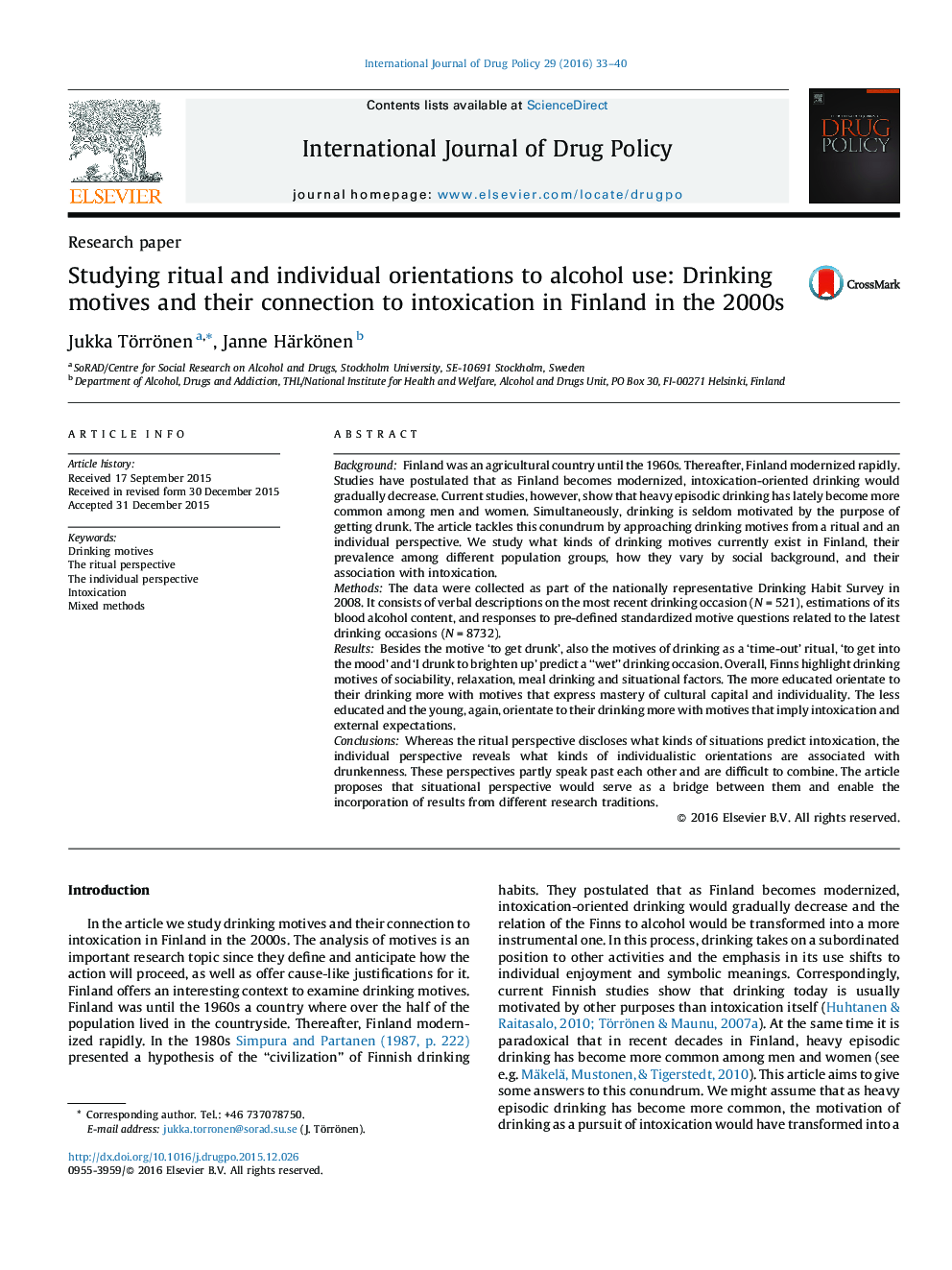| Article ID | Journal | Published Year | Pages | File Type |
|---|---|---|---|---|
| 1075029 | International Journal of Drug Policy | 2016 | 8 Pages |
BackgroundFinland was an agricultural country until the 1960s. Thereafter, Finland modernized rapidly. Studies have postulated that as Finland becomes modernized, intoxication-oriented drinking would gradually decrease. Current studies, however, show that heavy episodic drinking has lately become more common among men and women. Simultaneously, drinking is seldom motivated by the purpose of getting drunk. The article tackles this conundrum by approaching drinking motives from a ritual and an individual perspective. We study what kinds of drinking motives currently exist in Finland, their prevalence among different population groups, how they vary by social background, and their association with intoxication.MethodsThe data were collected as part of the nationally representative Drinking Habit Survey in 2008. It consists of verbal descriptions on the most recent drinking occasion (N = 521), estimations of its blood alcohol content, and responses to pre-defined standardized motive questions related to the latest drinking occasions (N = 8732).ResultsBesides the motive ‘to get drunk’, also the motives of drinking as a ‘time-out’ ritual, ‘to get into the mood’ and ‘I drunk to brighten up’ predict a “wet” drinking occasion. Overall, Finns highlight drinking motives of sociability, relaxation, meal drinking and situational factors. The more educated orientate to their drinking more with motives that express mastery of cultural capital and individuality. The less educated and the young, again, orientate to their drinking more with motives that imply intoxication and external expectations.ConclusionsWhereas the ritual perspective discloses what kinds of situations predict intoxication, the individual perspective reveals what kinds of individualistic orientations are associated with drunkenness. These perspectives partly speak past each other and are difficult to combine. The article proposes that situational perspective would serve as a bridge between them and enable the incorporation of results from different research traditions.
